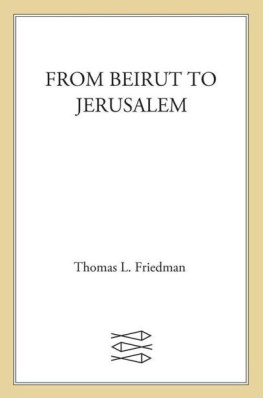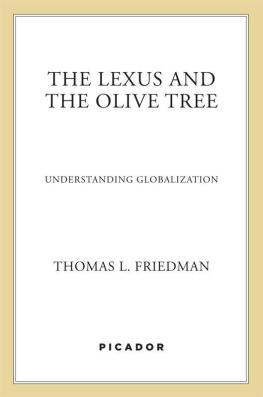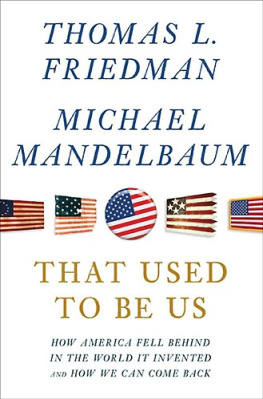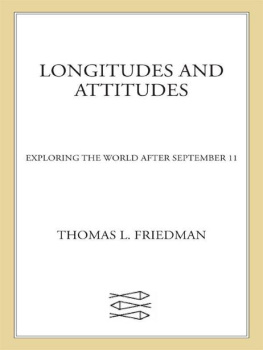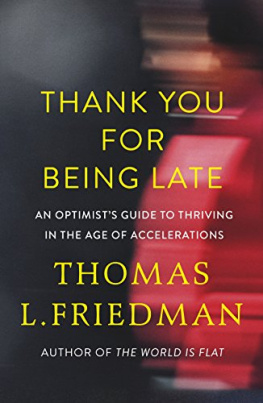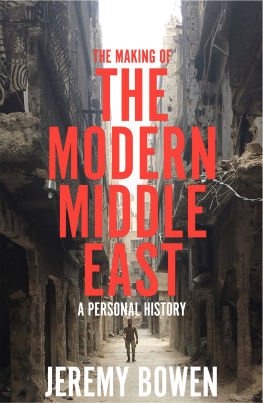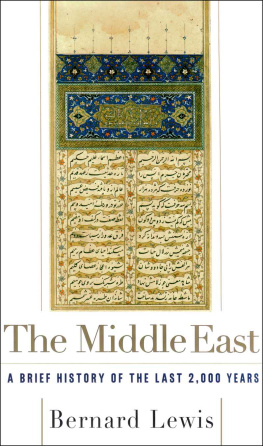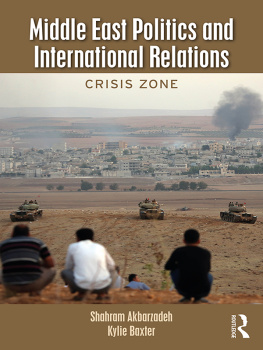1882 As a result of the persecution of Jews in Russia and Romania a year earlier, the first large-scale immigration of Jewish settlers to Palestine takes place.
1891 Arab notables in Jerusalem send a petition to the Ottoman government in Constantinople demanding the prohibition of Jewish immigration to Palestine and Jewish land purchases.
1896 Austrian journalist Theodor Herzl, the founder of modern Zionism, publishes his pamphlet The Jewish State, which argues that the Jewish Problem can be solved only by setting up a Jewish state in Palestine, or somewhere else, so that Jews can live freely without fear of persecution. A year later, Herzl organizes the first Zionist Congress in Basel, Switzerland, to promote immigration to Palestine.
1908 The first Palestinian Arabic newspapers appear: Al-Quds, in Jerusalem and Al-Asmai in Jaffa.
1916 The Sykes-Picot Agreement is forged by Britain, France, and Russia, carving up the Ottoman Empire after its defeat in World War I. As part of the agreement, Britain wins effective control over the area of Palestine, and France over the area that is now Lebanon and Syria.
1917 The Balfour Declaration is issued by British Foreign Secretary Arthur J. Balfour, endorsing the idea of establishing a national home for the Jewish people in Palestine.
1920 France decrees the formation of the state of Greater Lebanon, knitting together Mt. Lebanon with the regions of Beirut, Tripoli, Sidon, Tyre, Akkar, and the Bekaa Valley.
1936-39 Inspired by other Arab nationalist movements, the Arabs of Palestine revolt in an attempt to halt the establishment of a Jewish homeland in Palestine. Both Jewish settlements and British army units come under attack.
1943 Lebanons Christian and Muslim leaders agree on a National Pact for sharing power and balancing Lebanons Western and Arab orientations, enabling their country to become a state independent of France.
1947 The United Nations votes to partition Palestine into two states, one for the Jews and one for the Palestinian Arabs, with Jerusalem to become an international enclave.
1948 Britain withdraws from Palestine. Instead of implementing the UN partition plan, the surrounding Arab states join with the local Palestinians to try to prevent the emergence of a Jewish state. Israel is established anyway; Jordan occupies the West Bank and Egypt the Gaza Strip.
1956 Israel, joining forces with Britain and France to attack Gamal Abdel Nassers Egypt, occupies most of the Sinai Peninsula. Under pressure from both the United States and the Soviet Union, Israel later withdraws.
1958 The first Lebanese civil war erupts and some 15,000 American troops are sent to Beirut to help stabilize the situation.
1964 Arab heads of state led by Nasser establish the Palestine Liberation Organization (PLO) in Cairo.
1967 Israel launches a preemptive strike against Egypt, Syria, and Jordan as they are preparing for war against the Jewish state. The Six-Day War ends with Israel occupying the Sinai Peninsula, the Golan Heights, the Gaza Strip, and the West Bank.
1969 Yasir Arafat, leader of the al-Fatah guerrilla organization, is elected chairman of the executive committee of the PLO.
1970 King Husseins army defeats Arafats PLO guerrillas in a civil war for control of Jordan.
1973 Egypt and Syria launch a surprise attack against Israeli forces occupying the Sinai Peninsula and the Golan Heights.
1974 An Arab summit conference in Rabat, Morocco, affirms that the PLO is the sole and legitimate representative of the Palestinian people.
1975 Civil war breaks out again in Lebanon.
1977 Egyptian President Anwar Sadat goes to Jerusalem, addresses the Israeli parliament, and offers full peace in exchange for a total Israeli withdrawal from Sinai.
1979 Egypt and Israel sign their peace treaty.
1982February The Syrian government massacres thousands of its own citizens while suppressing a Muslim rebellion launched from the town of Hama.
1982June to September Israel invades Lebanon. Phalangist militia leader Bashir Gemayel is assassinated after his election as Lebanons President. Phalangist militiamen massacre hundreds of Palestinians in the Sabra and Shatila refugee camps in Beirut, while the camps are surrounded by Israeli forces. U.S. Marines arrive in Beirut as part of a multinational peacekeeping force.
1983 The American embassy and U.S. Marine headquarters in Beirut are blown up by suicide car bombers.
1984February The Lebanese government of President Amin Gemayel splinters after Shiite Muslims and Druse in West Beirut launch a revolt against the Lebanese army. President Reagan abandons hope of rebuilding Lebanon and orders Marines home.
1984September Israels Labor and Likud Parties join together in a national unity government after July elections end in a stalemate.
1985 Israel unilaterally withdraws its army from most of Lebanon.
1987December The Palestinian uprising, or intifada, begins in the West Bank and Gaza Strip.
1988December Arafat recognizes Israels right to exist. U.S. Secretary of State George P. Shultz authorizes the opening of a dialogue with the PLO. Likud and Labor join together to form another national unity government in Israel after another stalemated election.
Prelude: From Minneapolis to Beirut
In June 1979, my wife, Ann, and I boarded a red-and-white Middle East Airlines 707 in Geneva for the four-hour flight to Beirut. It was the start of the nearly ten-year journey through the Middle East that is the subject of this book. It began, as it ended, with a bang.
When we got in line to walk through the metal detector at our boarding gate, we found ourselves standing behind three broad-shouldered, mustachioed Lebanese men. As each stepped through the metal detector, it would erupt with a buzz and a flashing red light, like a pinball machine about to tilt. The Swiss police immediately swooped in to inspect our fellow passengers, who turned out not to be hijackers bearing guns and knives, although they were carrying plenty of metal; they were an Armenian family of jewelers bringing bricks of gold back to Beirut. Each of the boys in the family had a specially fitted money belt containing six gold bars strapped around his stomach, and one of them also had a shoe box filled with the precious metal. They sat next to Ann and me in the back of the plane and spent part of the flight tossing the gold bricks back and forth for fun.
When our MEA plane finally touched down at Beirut International Airport, and I beheld the arrival terminals broken windows, bullet scars, and roaming armed guards, my knees began to buckle from fear. I realized immediately that although I had spent years preparing for this momentbecoming a foreign correspondent in the Middle Eastnothing had really prepared me for the road which lay ahead.
In Minneapolis, Minnesota, where I was born and raised, I had never sat next to people who tossed gold bricks to each other in the economy section on Northwest Airlines. My family was, I suppose, a rather typical middle-class American Jewish family. My father sold ball bearings and my mother was a homemaker and part-time bookkeeper. I was sent to Hebrew school five days a week as a young boy, but after I had my bar mitzvah at age thirteen, the synagogue interested me little; I was a three-day-a-year Jewtwice on the New Year (Rosh Hashanah) and once on the Day of Atonement (Yom Kippur). In 1968, my oldest sister, Shelley, spent her junior year abroad at Tel Aviv University; it was the year after Israels dramatic victory in the Six-Day Wara time when Israel was very much the in place for young American Jews. Over the Christmas break of 1968 my parents took me to Israel to visit my sister.

